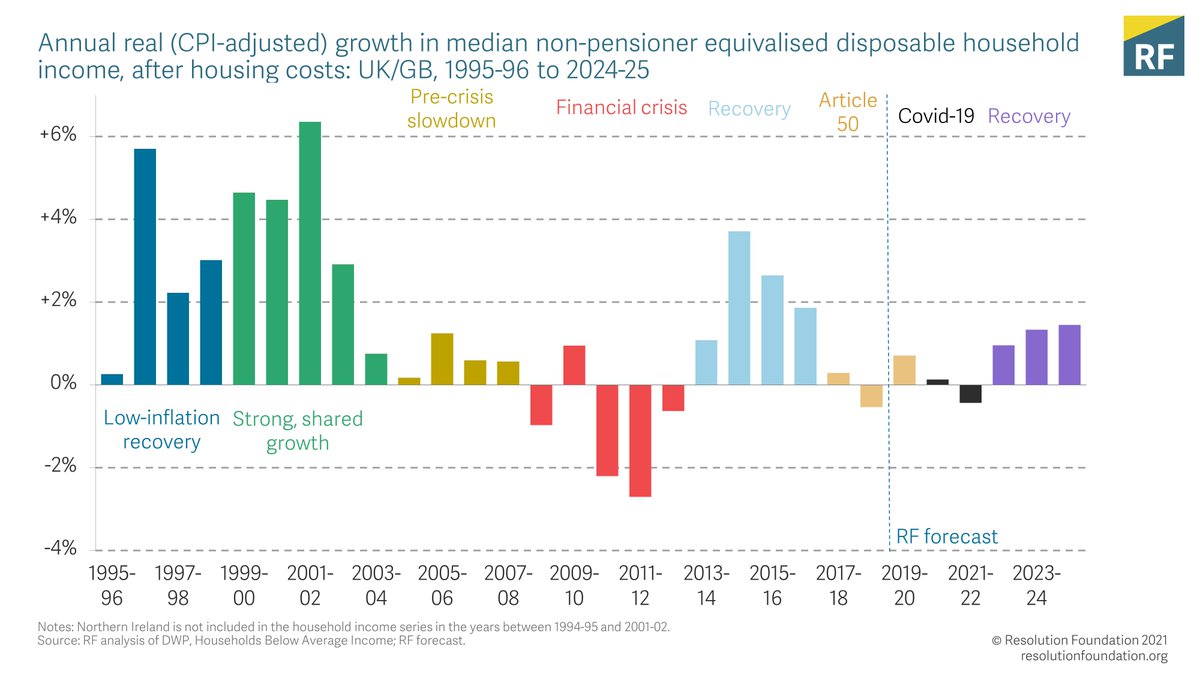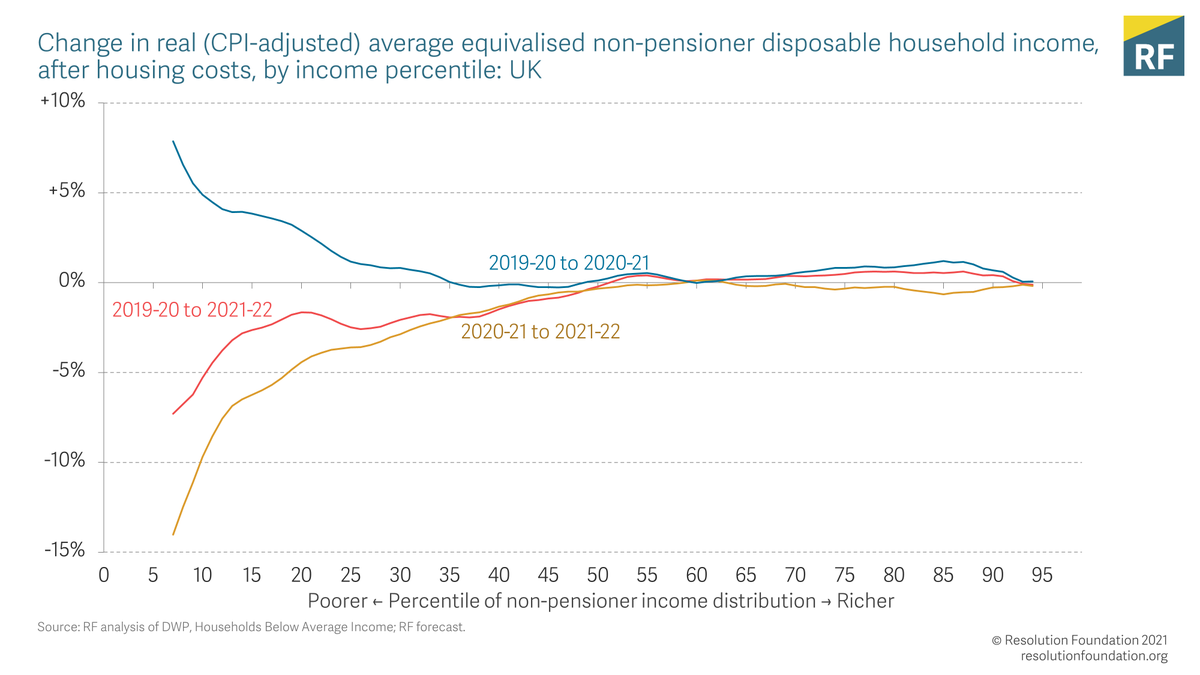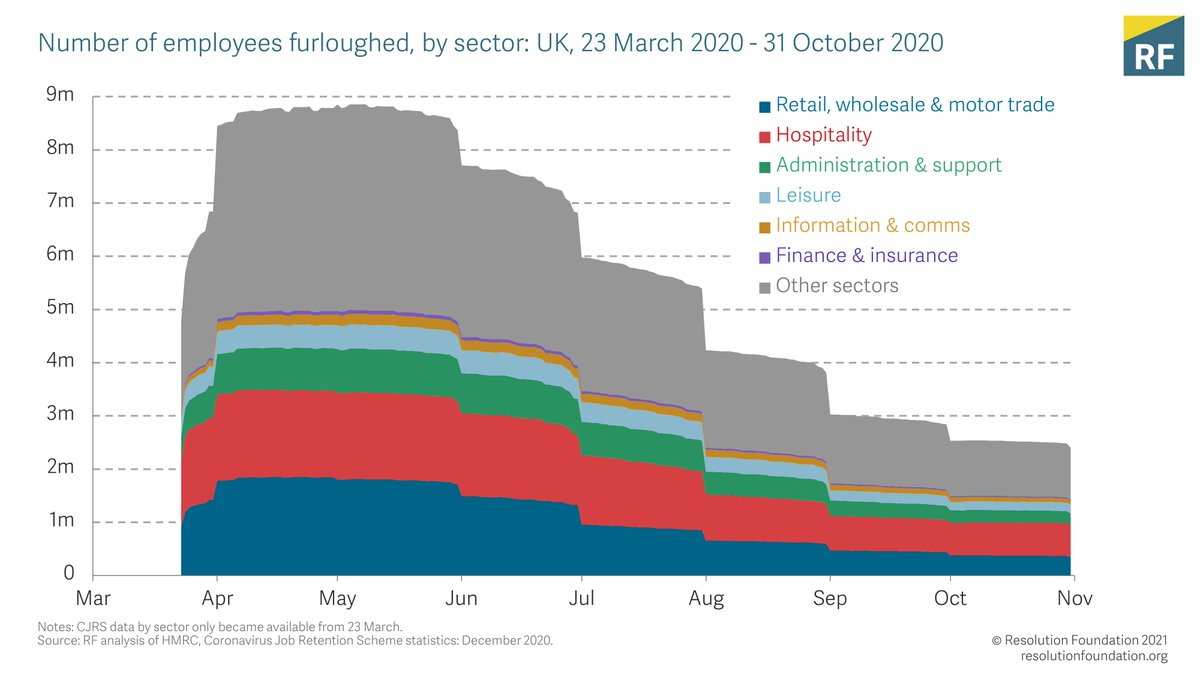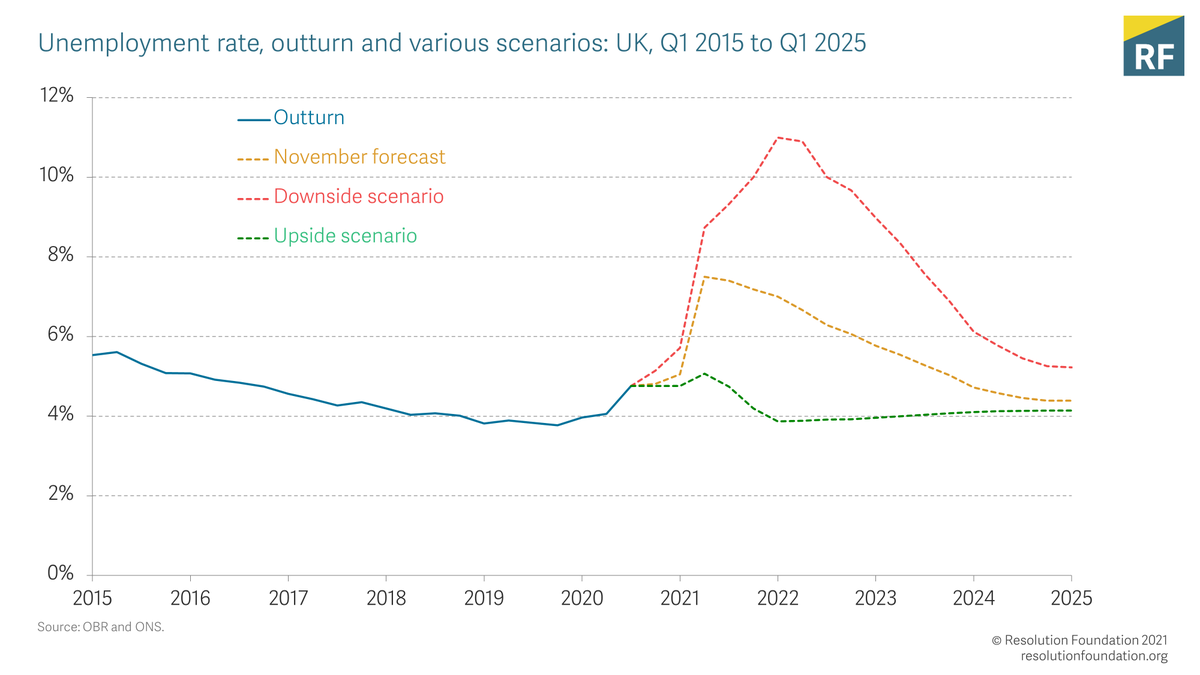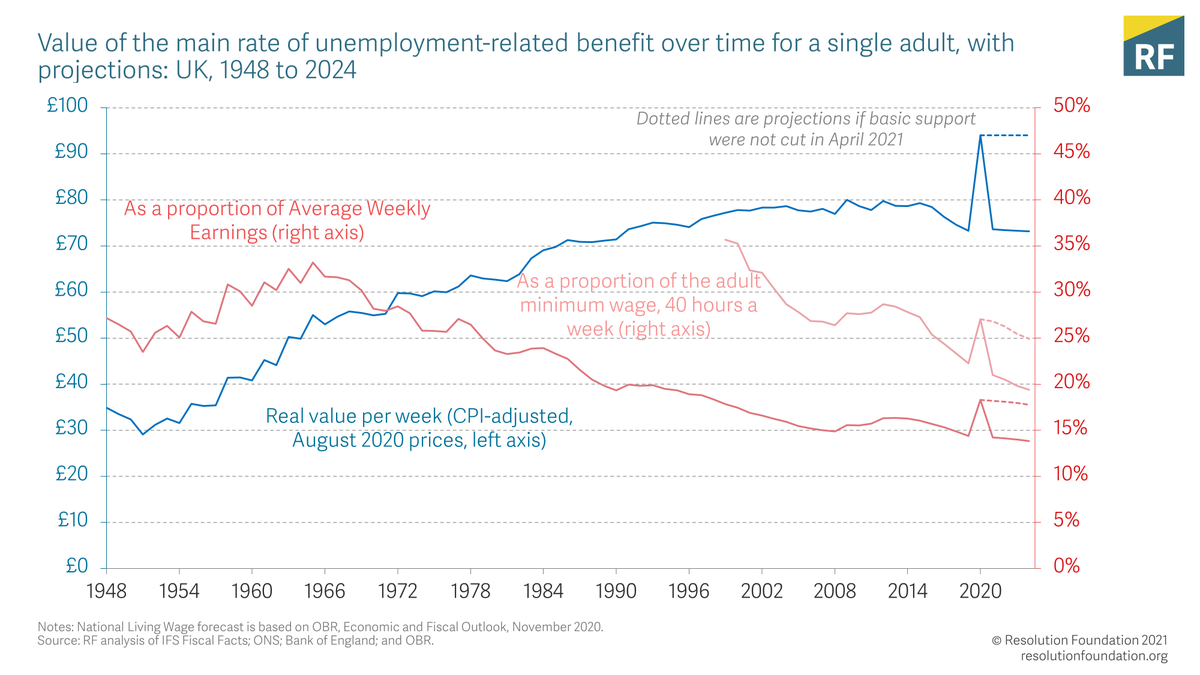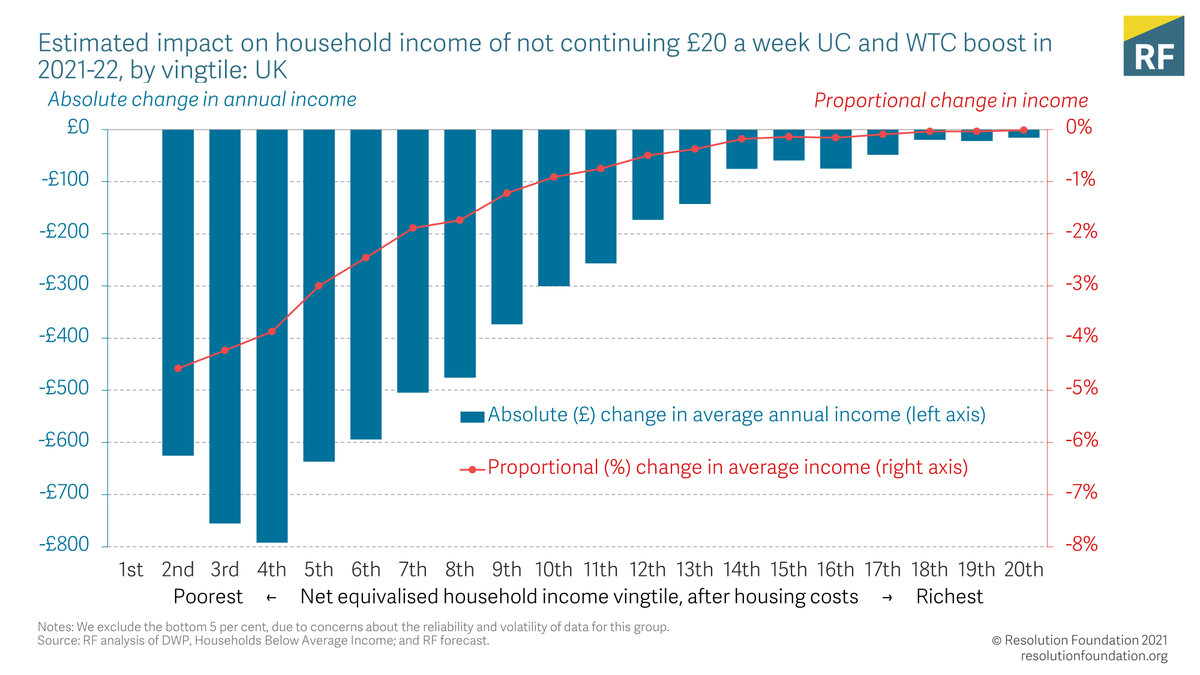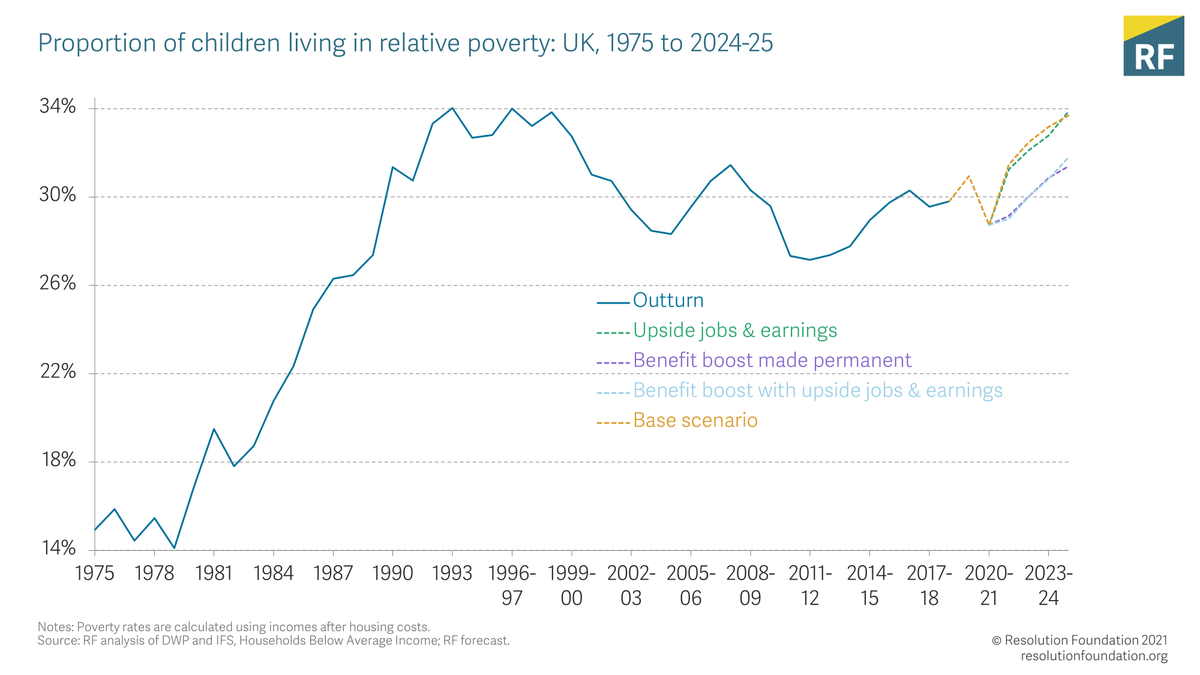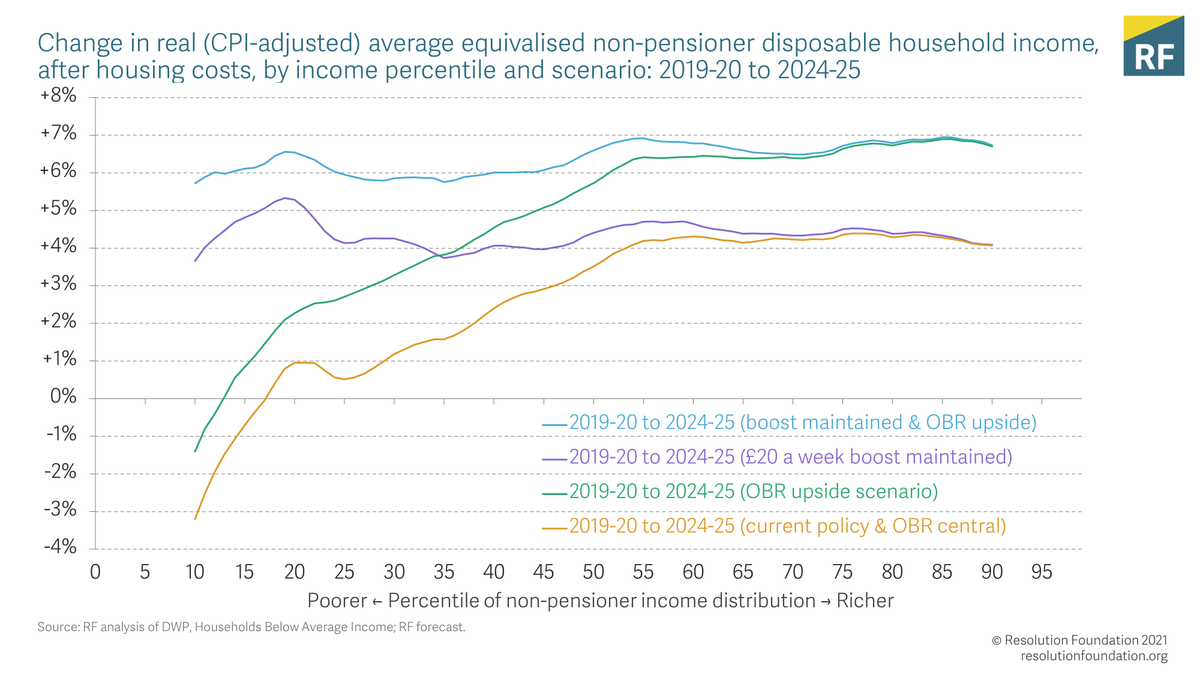Today we have published the latest Living Standards Outlook – taking a look at what the next few years have in store for household incomes in the UK. A few highlights.... https://www.resolutionfoundation.org/publications/the-living-standards-outlook-2021/
Our headline results show that, thanks to Government support schemes, non-pensioner incomes grew very slightly in 2020-21 – by 0.1% - despite GDP falling by 8.5%. But without further action they are likely to fall by 0.4% next year.
The median masks a large degree of variation across the distribution, with incomes at the 10th percentile rising by 5% in the last year, but set to fall by over 10% into next. This deterioration is caused by rising unemployment and the removal of the £20 a week benefit boost.
During 2020-21, the JRS & SEISS have protected a huge number of employees from unemployment and self-employed from income losses. In the lockdown in Spring 2020, one-third of the workforce were supported by these schemes.
However, with restrictions due to ease and support schemes due to end, the OBR has forecast a rise in unemployment next year, which will lead to income losses for households, who will instead have to rely on benefits.
The price-adjusted value of unemployment benefit – now Universal Credit – will soon be at the lowest level since 1990-91. The £20 a week boost completely reversed that decline, but its removal in April would reduce it to less than 15% of average weekly earnings.
This single policy decision will cause incomes of the poorest households to fall by more than 4% in April, and will affect the distribution of household income growth over the whole Parliament.
How equally income growth is shared has important consequences for poverty. Under current forecasts and policy, we forecast relative poverty rising by 0.9% points over the Parliament (after a large fall this year, followed by a large rise in 2021-22).
Even more concerningly, we forecast absolute and relative child poverty rising over the course of the Parliament. This is due in part to the continuing roll-out of the two-child limit introduced in 2017.
A strong and fast recovery will boost living standards: the OBR’s ‘upside’ scenario would increase incomes in the top half by 6% or more, rather than 4% in their central scenario.
But the £20 a week uplift makes the difference to whether growth is equally shared or not. If it can be continued, then incomes at the 25th percentile would grow by 4 per cent over this Parliament, compared to a less-than-1 per cent rise otherwise.
The future means the Government must navigate an uncertain recovery for the UK, with rising unemployment and reductions in benefits causing lower income growth, alongside increasing rates of child poverty. https://www.resolutionfoundation.org/publications/the-living-standards-outlook-2021/
For more on this join our discussion on the outlook for living standards as we exit the pandemic, with @ChrisGiles_ @ruthpatrick0 @dan_tomlinson_ & @TorstenBell at 11am today. Sign up here https://www.resolutionfoundation.org/events/a-standard-recovery/

 Read on Twitter
Read on Twitter